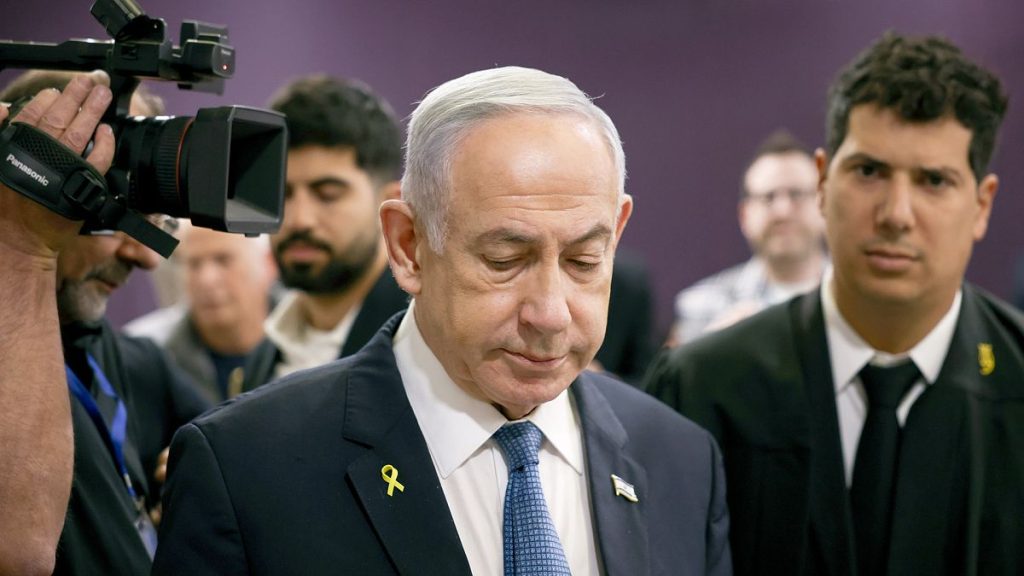The Polish government, led by Prime Minister Donald Tusk, has affirmed its commitment to ensuring the safe participation of Israeli leaders at the 80th anniversary of the liberation of Auschwitz-Birkenau concentration camp, scheduled for January 27th. This assurance comes despite the existence of an International Criminal Court (ICC) arrest warrant against Israeli Prime Minister Benjamin Netanyahu for alleged war crimes and crimes against humanity. The Polish government’s stance, formalized in a resolution, explicitly states that any Israeli leader, including Prime Minister Netanyahu, attending the commemoration will be guaranteed safety and will not be detained. This decision was prompted by a request from Polish President Andrzej Duda, belonging to the opposition Law and Justice party (PiS).
The ICC issued the arrest warrants for Netanyahu, his former defense minister, and a Hamas leader in November, related to the 2014 Gaza war. While ICC member states like Poland are obligated to detain individuals under warrant, the court lacks an enforcement mechanism. Israel, not an ICC member, contests the court’s jurisdiction. This situation has created a diplomatic conundrum for ICC member states, with some like France and Hungary indicating they would not comply with the warrant. Hungary’s Prime Minister Viktor Orbán has overtly defied the warrant by inviting Netanyahu to Budapest.
Poland’s decision to guarantee Netanyahu’s safety at the Auschwitz commemorations highlights the complex interplay between international legal obligations, diplomatic considerations, and the historical significance of the event. Prime Minister Tusk emphasized that the resolution specifically applies to the Auschwitz commemorations and doesn’t signify a broader disregard for international tribunals. Poland walks a tightrope, balancing its ICC membership obligations against the desire to facilitate international participation in a critical historical remembrance. The EU, meanwhile, has reiterated its commitment to international criminal justice and urged all states to cooperate with the ICC, including executing outstanding arrest warrants, creating potential tension with Poland’s specific decision regarding Netanyahu.
The question of Netanyahu’s attendance remains unanswered. The Polish Foreign Ministry has not received official confirmation of his plans. His presence at previous Auschwitz anniversaries, however, suggests a potential visit. The 80th anniversary holds profound significance, drawing international officials and elderly survivors to Oswiecim, the town where the Nazis operated the infamous death camp. The commemoration serves as a stark reminder of the Holocaust’s horrors and the imperative to learn from history.
The Auschwitz-Birkenau camp stands as a grim testament to the atrocities of the Holocaust. Over 1.1 million people were murdered within its confines, the majority being Jewish. Poles, Roma, Soviet prisoners of war, and others also perished in the camp. The systematic extermination of Jews during World War II constitutes a horrifying chapter in human history. In Poland alone, at least 3 million out of 3.2 million Jews were murdered by the Nazis, representing roughly half of the total Jewish victims of the Holocaust. The commemoration serves as a solemn occasion to honor the victims and reflect on the devastating consequences of hatred and intolerance.
The Polish government’s decision to ensure Netanyahu’s safety at the Auschwitz commemorations underscores the sensitive nature of balancing international legal obligations with diplomatic realities and historical sensitivities. The commemoration itself provides a poignant backdrop to this dilemma, serving as a powerful reminder of the human cost of genocide and the importance of international cooperation in pursuing justice and preventing future atrocities. While the EU emphasizes the importance of upholding international law, individual member states like Poland grapple with the practical and political implications of enforcing ICC warrants, particularly in the context of historically significant events like the Auschwitz anniversary. The ultimate decision regarding Netanyahu’s attendance and the potential ramifications remain to be seen.














